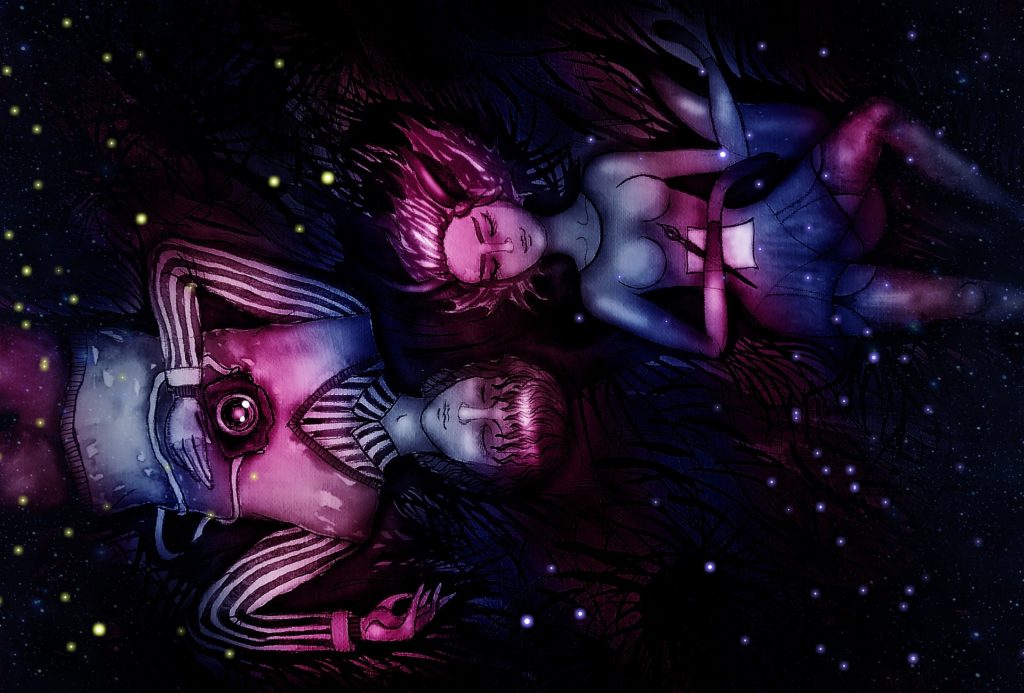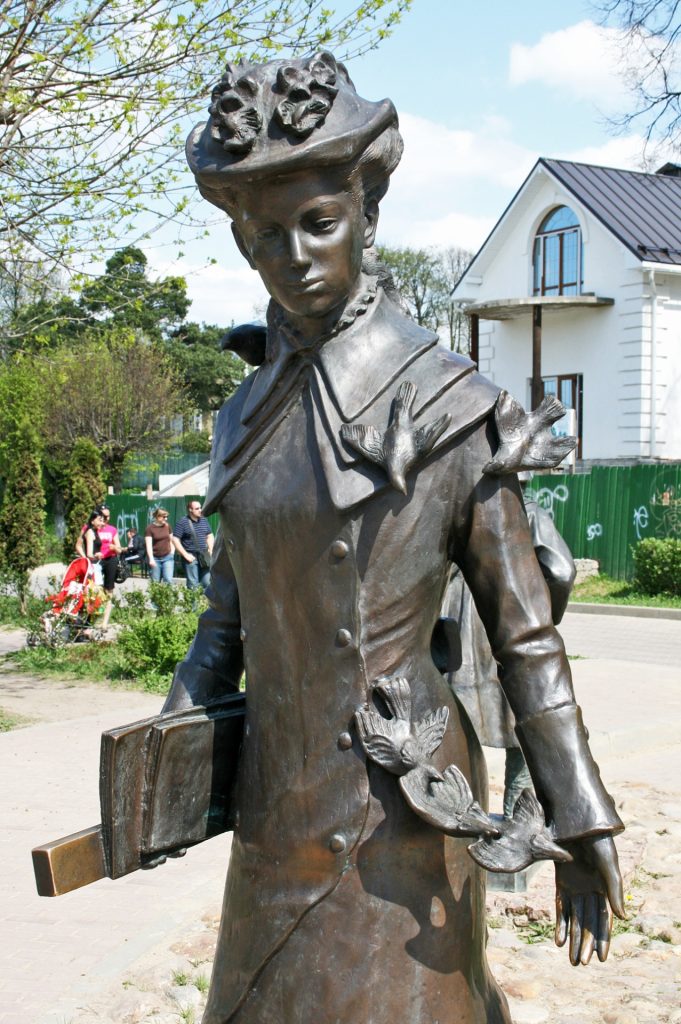Thank you to Jacques Fleury for responding to our request for readers to offer their expertise to assist writers! He has a variety of published writing which he can refer people to on request and is open to being interviewed on these topics:
-History of Haiti, as an author on the subject & as a Haiti born American citizen
-Black/African American History, as a “black” man who grew up in America & as an author on the subject
-Race and Racism, as a Person of Color having survived & thrived despite lived experience of racism & as author on subject
-Mental Health/Illness/Wellness & Recovery, having had lived experience & as an author on the subject
Everyone else, if you have an area of knowledge where you’d be glad to be interviewed to help people who are writing about that topic, please reach out to us at synchchaos@gmail.com.
Also, our contributor Abigail George’s book When Bad Mothers Happen, released January 2024 from European publisher Morten Rand, is available for Synchronized Chaos readers to review. Please let us know if this interests you and her publisher can send review copies (and we can publish reviews!)
It is available on Amazon here, and here is a link to a promo video.
This month, our contributors figure out how to make sense of the universe, piece by piece.
Alan Catlin renders lists and catalogues into a form of poetry, building up objects from their components, like a brick tower or a floral arrangement. J.D. Nelson crafts auditory and visual snapshots that can stand for and evoke an entire scene.
Soren Sorensen contributes mixed media alterations of reality and existential poetry on making sense of the universe. Mars Brocke’s mixed media artwork plays with reality and perception in a nod to Alice in Wonderland. His poetry, also surreal, evokes memories and states of mind. Martha Ellen conveys the psychological changes induced by benzodiapine medicine and the fluidity and vulnerability of the human brain and mind. Mark Young creatively defines concepts through descriptive words that once explained something.
Christina Chin and Uchechukwu Onyedikam’s collaborative haiku focuses on and thus highlights the value of noticing small and in-between moments.
Saidova Mahzuna outlines methods for learning and teaching vocabulary. Mo’minjonova Diyora highlights the benefits of continuing to read and learn throughout life. Sevinchoy Sanat outlines ways to enhance education through technology as Ibrohimova Durdonaxon outlines different areas to focus on when improving childhood education. However, sometimes the old ways still hold wisdom: Daniel De Culla relates a humorous tale of a modern woman who chooses to go with folk wisdom regarding her health. Gregg Norman presents a poem from the point of view of a character who’s living life to the fullest, with health benefits as incidental.
Noah Berlatsky muses on the identity of Spock and on what makes intriguing literary characters. Jacques Fleury reflects on his personal and cultural identity. Mesfakus Salahin speaks to life, death, and personal accountability, redemption, and the meaning of one individual life. David Sapp relates a tale of responsibility, honor, and mailboxes. Ranjan Sagar reminds us that others’ poor character need not diminish our own. Lilian Dipasupil Kunimasa addresses the tension between roots and wings, needing to fly free and wanting a stable nest, and reflects on the end of life. Paul Tristram speaks to personal growth, strength, and self-discipline while Sarvinoz Mansurova shares her family’s dreams for her and her own aspirations. Nigora Tursunboyeva’s short story celebrates adventure and finding one’s own way in life.

Gaurav Ojha reflects on how he will take nothing with him when he leaves the earth. Graciela Noemi Villaverde expresses the exquisite anguish of losing someone close to her. Engin Cir speaks to the grief, but also the indignation, of romantic heartbreak. Faleeha Hassan evokes the feeling of anxiety, being exposed and weighed down. Mykyta Ryzhykh conveys alienation, cold, and a halfway state between life and death.
Duane Vorhees speaks to creativity, sensuality, and history, evoking major and minor apocalypses that occur when people cannot or do not adapt to constant change. Taylor Dibbert reflects on how creativity can help him weather, if not avoid, his struggles. Z.I. Mahmud links the expectations of Samuel Beckett’s characters in Waiting for Godot to those of broader Western religious and cultural traditions.
Adam Fieled writes of our twin natures, the balance of masculine and feminine. Z.I. Mahmud examines the family relationships in D.H. Lawrence’s Sons and Lovers through a Freudian psychoanalytic lens. Karimova Sarvara Karimovna crafts an elegant and highly personal love poem. Kristy Raines speaks to the joy of a close loving relationship. Aytuvova Khurshida shares a love story that gets interrupted by life, but where the former partners always remember each other. Numonova Khonzodabegim poignantly shares the challenges and risks military families face.
J.K. Durick speaks to the harsh realities of aging and death and hunger, which can be eased, but not completely erased, by modern culture. J.J. Campbell’s poetry addresses aging and resignation while Dildora Toshtemirova reflects on the loss of a close friend or lover. Nosirova Gavhar’s short story combines two great human passions: love and grief.
Paul Callus and Christina Chin collaborate on a wide-ranging haiku collection evoking home, place, and time. Stephen Jarrell Williams captures many of summer’s varied moods in his haiku. Steven Croft watches a Civil War reenactment through the eyes of a modern veteran. Brooks Lindberg speaks to what we remember and what we forget, of grasping happiness despite reality. Rustamjonova Nodira celebrates the perseverance of Uzbekistan’s founders, leaders, and people, as Nuraini Mohammed Usman urges her society to carry out collective housecleaning and purge old enmities.
Murodova Sitora urges teachers to continue to learn and develop their skills and be accorded the respect and resources in order to do so. Abduraximova Muyassarxon relates how a dedicated teacher helped her regain her confidence. Rukshona Qiyomova outlines the many responsibilities of a teacher and the value of the teaching profession. Sevinch Saidova reflects on the value of education for personal development. Sushant Kumar highlights the need for teachers to serve as role models as well as impart intellectual information.

Majidova Sevinch pays tribute to the many dimensions of a mother’s love and care. Sobirjonova Rayhona offers a tribute to her sister’s care and friendship. Ilhomova Mohichehra takes joy in her friends and her lovely homeland of Uzbekistan.
Brian Barbeito revels in the easy intimacy of the conversation on a summer hike. Salokhiddinova Mohichehra examines the structure and function of nature close to home, the human kidney. Isabel Gomez de Diego contributes visual poetry of everyday life: dinner with family, a visit with a grandson, a tree in the yard. Kylian Cubilla Gomez takes closeup peeks at backyard chickens.
Sayani Mukherjee recollects a quiet morning outdoors under the blue sky, smelling the scent of trees with her child. Maja Milojkovic yearns for and finds reminders of her lover in every aspect of nature. Intizor Samandarova evokes the sky’s expansive emptiness in her poetry as Don Bormon poetizes about the vast variety of clouds.
However, nature is not always calm: researcher Les Beley speaks to the ecological impact of Russia’s invasion of Ukraine. Mahbub Alam describes the recent flash floods in parts of Bangladesh and the loss of life and property.
Farida Botayeva reflects on how quickly our circumstances and emotions can change. Ziyoda Murodilova considers how she will persevere in her life despite unpredictable feelings.
Finally, Christopher Bernard presents an old-style lyrical recipe for preparing hope in the kitchen.

Hot pics inside – https://t.me/fox34123554